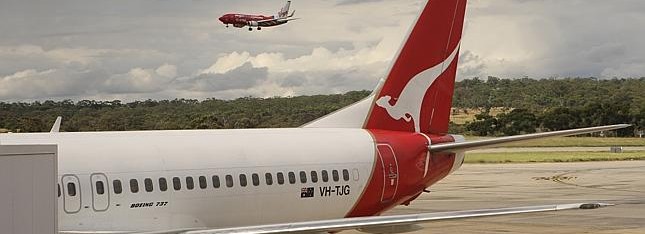The Tax Office has won a crucial case against Qantas, preventing the airline from claiming millions of dollars in goods and services tax overpayments and averting copycat claims from service providers across the tourism, hospitality and utilities industries.
The High Court on Tuesday morning held that Qantas was liable to pay GST on tickets bought by passengers who did not end up taking their flights, in a majority decision that overturned the hands-down win for the airline at the full Federal Court level.
The decision gives some protection to the base of GST revenue, which is leaking $15 billion a year due because of its narrow coverage
The court stoush covered a period of eight years from 2000, when the GST was introduced. During this period Qantas paid the consumption tax on cancelled or forfeited flights. The airline also covered payments by its budget subsidiary Jetstar over a four-year period.
Qantas had claimed that where passengers did not receive a refund – because they had non-refundable tickets or did not bother to claim their refund – it had not provided a service and therefore no GST was due.
But a Tax Office private ruling demanded that Qantas pay the GST.
The airline lost the first two legs of its challenge; the Administrative Appeals Tribunal and the Federal Court found that despite not receiving a flight, customers had received a “service” from Qantas as it readied itself for the flight.
That decision was then overturned in a unanimous ruling of the Federal Court in Sydney more than a year ago, on September 1, 2011.
“It is plain that what each customer pays for is carriage by air,” Justices Richard Edmonds and Nye Perram said at the time.
“Having recognised the actual travel had not been supplied, and that was the purpose of the booking, that should have been the end of the inquiry.”
The High Court has now overturned that judgment, delivering the final ruling on the matter.
A majority held that Qantas had made a “taxable supply” once it took the fare, regardless of whether or not the flight was taken.
“Flights were sold and bookings taken on the basis that Qantas would use its best endeavours to carry the passenger and baggage, having regard to the circumstances of the business operations of the airline,” a summary statement issued by the High Court said.
“Consequently, even if the passenger did not actually travel, there was a taxable supply incurring GST liability and Qantas was liable to remit the GST received on fares for unclaimed flights to the commissioner.”
The finding is a major win for the Tax Office, which over the past few years has suffered several devastating blows in high-profile cases against big companies including James Hardie and Consolidated Media Holdings.
It is also a win for the federal government, which last year received warnings from Treasury that the GST had become increasingly inefficient.













